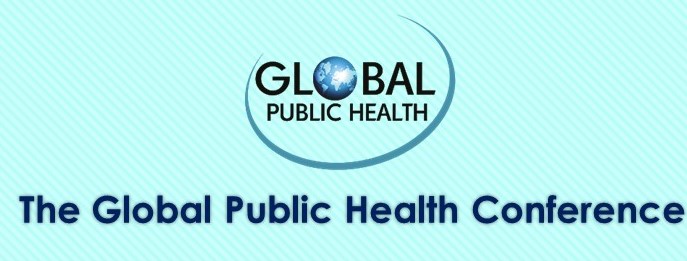COMPLEMENTARY FEEDING KNOWLEDGE AND ITS RELATED FACTOR ON COVID-19 POST PANDEMIC
DOI:
https://doi.org/10.17501/26138417.2022.5106Keywords:
mother, knowledge, complementary feeding, COVID-19, health promotion, health educationAbstract
Inappropriate complementary feeding (CF) is a major cause of child malnutrition and is more difficult when the COVID-19 (coronavirus disease-2019) occurs in Indonesia. The COVID-19 pandemic has made changes to healthcare utilization. This study purposed to capture and see the determinants of the mothers' CF knowledge during the COVID-19 pandemic. It focused on 133 mothers who have children aged 6-24 months and have internet access. The study was a cross-sectional and observational study conducted in Depok, West Java, Indonesia. The online survey for four weeks (November-December 2021) was performed to assess mothers' knowledge regarding CF during the COVID-19 outbreak. The obtained data were analyzed using logistic regression against various parameters, including mothers' education, knowledge, etc. The results exhibited that most mothers were 20-40 years old and had a bachelor's degree. Among the studied population, knowledge level on CF practice during the COVID-19 was fairly acceptable even though 53.4% of mothers had never gone to maternal class during the pandemic. Maternal education was the strongest determinant of CF knowledge (p= 0.009), even during the outbreak. Next, the research revealed that the maternal class did not directly affect CF knowledge during the COVID-19. On the other hand, health workers' role was one of the strongest CF determinants (p= 0.01). In conclusion, even though it is crucial to have good awareness about CF, it is strongly recommended that healthcare keep improving their CF online consultation and health social media as a reliable source, especially during the pandemic.
Downloads
References
Ahmad, A., Madanijah, S., Dwiriani, C. M., & Kolopaking, R. (2020). Determinant Factors of Maternal Knowledge on Appropriate Complementary Feeding of Children Aged 6–23 Months in Aceh. Journal of Nutritional Science and Vitaminology, 66(Supplement), S239–S243. https://doi.org/10.3177/jnsv.66.s239
Beal, T., Tumilowicz, A., Sutrisna, A., Izwardy, D., & Neufeld, L. M. (2018). A review of child stunting determinants in Indonesia. Maternal & Child Nutrition, 14(4), e12617. https://doi.org/10.1111/mcn.12617
Fewtrell, M., Bronsky, J., Campoy, C., Domellöf, M., Embleton, N., Fidler Mis, N., Hojsak, I., Hulst, J. M., Indrio, F., Lapillonne, A., & Molgaard, C. (2017). Complementary Feeding. Journal of Pediatric Gastroenterology and Nutrition, 64(1), 119–132. https://doi.org/10.1097/mpg.0000000000001454
Golinelli, D., Boetto, E., Carullo, G., Nuzzolese, A. G., Landini, M. P., & Fantini, M. P. (2020). How the COVID-19 pandemic favored the adoption of digital technologies in healthcare: a systematic review of early scientific literature (Preprint). Journal of Medical Internet Research, 22(11). https://doi.org/10.2196/22280
Horvath, A., Stróżyk, A., Dziechciarz, P., & Szajewska, H. (2021). An Online Cross-Sectional Survey of Complementary Feeding Practices during the COVID-19 Restrictions in Poland. Nutrients, 13(9), 3196. https://doi.org/10.3390/nu13093196
Kimani, R. W., Maina, R., Shumba, C., & Shaibu, S. (2020). Maternal and newborn care during the COVID-19 pandemic in Kenya: re-contextualising the community midwifery model. Human Resources for Health, 18(1). https://doi.org/10.1186/s12960-020-00518-3
Kostecka, M., Jackowska, I., & Kostecka, J. (2020). Factors Affecting Complementary Feeding of Infants. A Pilot Study Conducted after the Introduction of New Infant Feeding Guidelines in Poland. Nutrients, 13(1), 61. https://doi.org/10.3390/nu13010061
Munde, K. K., & Save, S. U. (2021). Complementary feeding practices in children aged 6-23 months: An institution-based observational study. Indian Journal of Child Health, 8(8), 269–272. https://doi.org/10.32677/ijch.v8i8.2976
Pearce, J., Taylor, M. A., & Langley-Evans, S. C. (2013). Timing of the introduction of complementary feeding and risk of childhood obesity: a systematic review. International Journal of Obesity, 37(10), 1295–1306. https://doi.org/10.1038/ijo.2013.99
Plantin, L., & Daneback, K. (2009). Parenthood, information and support on the internet. A literature review of research on parents and professionals online. BMC Family Practice, 10(1). https://doi.org/10.1186/1471-2296-10-34
Romulus-Nieuwelink, J. J. C., Doak, C., Albernaz, E., Victora, C. G., & Haisma, H. (2011). Breast milk and complementary food intake in Brazilian infants according to socio-economic position. International Journal of Pediatric Obesity, 6(2-2), e508–e514. https://doi.org/10.3109/17477166.2010.512387
Scott, J. A., Binns, C. W., Graham, K. I., & Oddy, W. H. (2009). Predictors of the early introduction of solid foods in infants: results of a cohort study. BMC Pediatrics, 9(1). https://doi.org/10.1186/1471-2431-9-60
Szymańska, P. (2021). Parental internet activity and communication through the new media - literature review. Kwartalnik Naukowy Fides et Ratio, 48(4), 211–235. https://doi.org/10.34766/fetr.v48i4.976
World Health Organization. (2020, June 23). Breastfeeding and COVID-19. Www.who.int. https://www.who.int/publications/i/item/WHO-2019-nCoV-Sci_Brief-Breastfeeding-2020.1
Downloads
Published
How to Cite
Issue
Section
License
Copyright (c) 2022 Asma Syifa Nabihah, Suminah, Anik

This work is licensed under a Creative Commons Attribution 4.0 International License.







